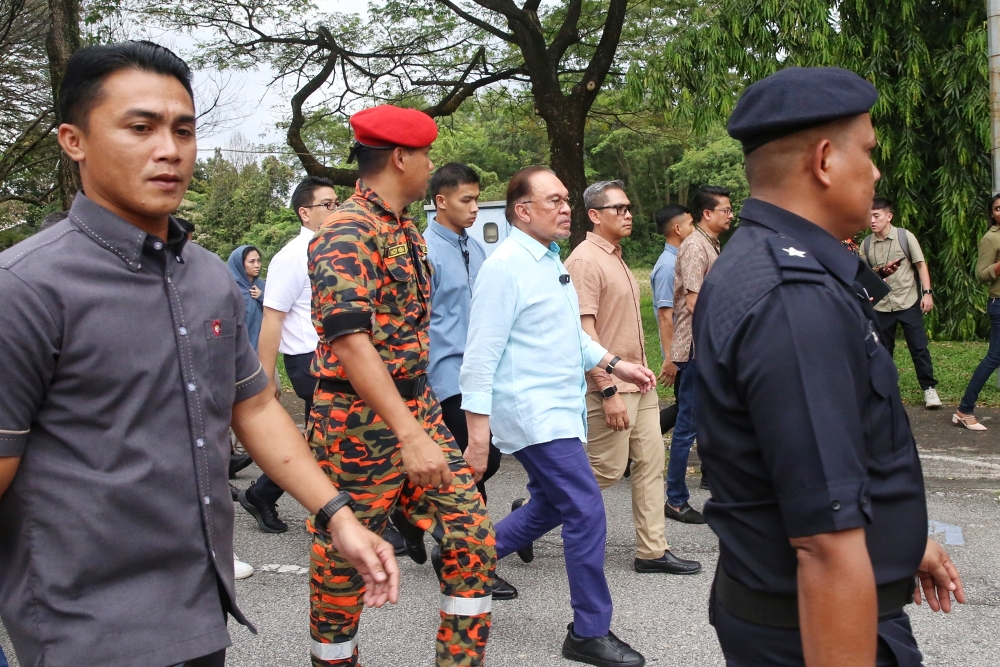Government, State and Petronas to Cover Compensation and Restoration for Putra Heights Gas Line Fire Incident

PETALING JAYA, April 1 — Compensation for residents in residential areas affected by the gas line fire incident at Putra Heights will be borne by the government and Petroliam Nasional Berhad (Petronas).
Federal, State, and Corporate Unity in Disaster Response
In the aftermath of the devastating gas line fire in Putra Heights last week, the Malaysian government has stepped forward to guarantee full compensation for affected homeowners. Prime Minister Datuk Seri Anwar Ibrahim announced on Monday that all costs related to restoration, repair, and compensation will be fully borne by the federal and state governments in partnership with Petronas. This initiative reflects a coordinated response to unforeseen events that left several homes damaged and residents devastated.Details from the Ground: What Happened in Putra Heights?
The incident, which occurred last weekend, involved a ruptured gas pipeline that resulted in a massive fire near a residential zone in Putra Heights. While there were thankfully no casualties, the blaze caused significant damage to several landed homes and raised major safety concerns among the residents. Emergency services were quick to respond and managed to contain the fire without further escalation. A full investigation has been initiated to determine the root cause of the explosion, while safety checks are being conducted on similar pipeline infrastructure across various key areas in the region.Prime Minister Anwar’s On-Site Visit and Reassurances
During his official visit to the site, Prime Minister Anwar confirmed that affected homeowners will not incur any out-of-pocket costs for damages caused by the fire. He emphasized a responsible approach where all stakeholders, including the government and corporate entities involved, are held accountable. “We don’t want the burden to fall on the victims,” stated Anwar. “Restoration efforts and financial compensation will be executed with urgency. The government, state, and Petronas will ensure that everything is restored swiftly and safely.”Immediate and Long-term Measures Announced
To ensure both immediate relief and long-term safety for the residents, several key measures have been outlined:- Damage Compensation: All affected homeowners will be compensated for structural damage to homes and personal belongings.
- Full Restoration: Restoration work is to be carried out without delay, with all infrastructure being rebuilt or repaired at no cost to the residents.
- Temporary Housing: Temporary accommodations are being arranged for displaced families while restoration efforts are underway.
- Pipeline Safety Audit: A full-scale audit of existing gas infrastructure, including underground pipelines, is being launched to prevent similar incidents.
Role of Petronas in the Restoration Process
As the nation’s oil and gas giant, Petronas will take a central role in facilitating the restoration and ensuring pipeline safety. Prime Minister Anwar made it clear that Petronas is not just assisting voluntarily, but is responsible for contributing due to their operational context in the area. The Prime Minister emphasized this point by saying, “We’re not asking for donations here. This is a responsibility. Petronas must be part of this because their infrastructure played a part in the incident.”Community Response: Relief and Caution
Many residents expressed a combination of relief and cautious optimism following the Prime Minister’s visit. With their homes affected and security shaken, residents had been living in uncertainty until the announcement of concrete compensation and rebuilding measures. According to one of the affected residents, “This is the first time we’ve seen such swift intervention. Normally bureaucracy slows everything down. But now, knowing repairs are covered and we’ll be safe again is a huge relief.” However, there remains concern over how similar incidents will be prevented in the future. Local NGOs and safety advocates have called for better monitoring and public transparency when it comes to underground gas infrastructure, especially in residential districts.Broader Implications: Infrastructure Oversight in Malaysia
While the government’s response has been lauded for its proactivity, the incident has also exposed broader infrastructure vulnerabilities. Public pressure is mounting for comprehensive reviews and more stringent regulation of utilities near residential zones. This incident underscores the importance of:- Stringent inspection protocols across all critical infrastructure
- Clear disaster response frameworks between federal agencies and private corporations
- Community education on emergency procedures in case of hazardous events
Political Accountability? No Immediate Signs, But Expectations Linger
At this stage, the government has addressed the situation purely through action and support mechanisms rather than engaging in any blame-shifting or political commentary. Anwar’s administration has taken a firm stand on corporate responsibility and infrastructural safety. There has been no political spin or diversion in the way the issue has been handled publicly so far. If anything, the response reflects a hopeful shift away from politicizing disasters, focusing instead on solutions. Political analysts have noted this approach as a potential credibility booster for the current administration, especially as it prepares for mid-term evaluations later this year.Next Steps: Monitoring and Transparency
Looking forward, there will be several key actions that both the public and media will be watching closely:- Speed and Quality of Repairs: Citizens expect timely and robust rebuilding efforts, with transparent timelines and updates.
- Public Disclosure of Safety Audits: Results from the pipeline infrastructure assessments should be shared to reassure other communities.
- Implementation of Preventive Systems: Early-warning systems or updated safety mechanisms need to be considered in high-risk zones.
- Legislative Reforms: If systemic flaws are discovered, calls are likely to emerge for updated legislation governing utility planning and housing development integration.
Comments
Post a Comment